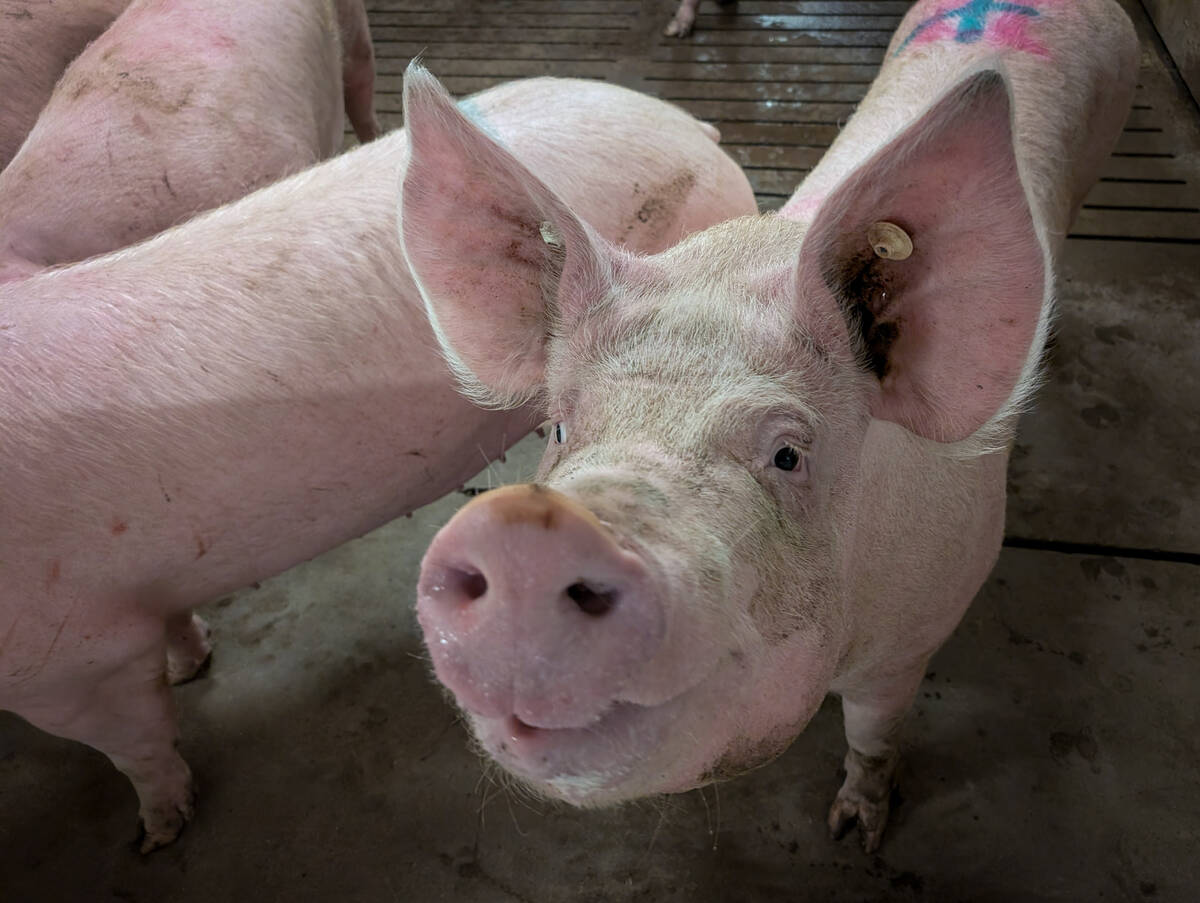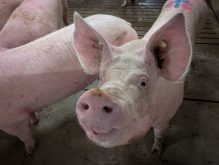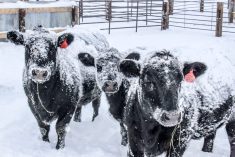Feeder cattle prices were steady to $2 per hundredweight (cwt) softer last week. Auction rings saw limited number of cattle come through and many buyers were still in holiday mode.
In southern Alberta 600- to 700-pound steers averaged $142/cwt while demand was stronger for 700- to 800-pound cattle which averaged $133/cwt. Heavier replacement cattle were steady to $2/cwt higher as 800- to 900-pound steers averaged $126/cwt. Feedlots are being more aggressive for shortkeep cattle in anticipation of tighter beef supplies in the fourth quarter. Alberta packers were paying $96/cwt for fed cattle this week, basically the same as seven days earlier.
Read Also

Gene edited, PRRS resistant pig approved in Canada
Canada has given its stamp of approval to pigs gene edited to resist porcine reproductive and respiratory syndrome (PRRS).
U.S. feeder cattle prices were steady with week-ago levels as excessive heat continues to plague much of the U.S. In Oklahoma, large framed steers in the range of 650 to 700 pounds averaged $140/cwt. Kansas feedlots sold fed cattle for $107 last week while cattle moved at $108.50 in Texas.
U.S. cattle on feed supplies have been trending three to five per cent above year-ago levels while the year-to-date slaughter is slightly below last year. Looking at the numbers to date, the market has larger supplies of market-ready cattle to absorb in the short term. This could weigh on the fed cattle market and spill over into the feeders. Beef demand may weaken due to lower consumer income. GDP and consumer spending came in lower than expected during the second quarter. High unemployment and poor consumer confidence will continue to temper beef demand.
U.S. corn prices are percolating higher as the fundamentals remain tight for 2011-12. Canadian barley supplies will also drop to historical lows at the end of this crop year. This is a major risk for the feeder cattle market moving into the fall run.
— Jerry Klassen is a commodity market analyst in Winnipeg and maintains an interest in the family feedlot in southern Alberta. He writes an in-depth biweekly commentary, Canadian Feedlot and Cattle Market Analysis, for feedlot operators in Canada. He can be reached by email at [email protected] or at 204-287-8268 for questions or comments.

















